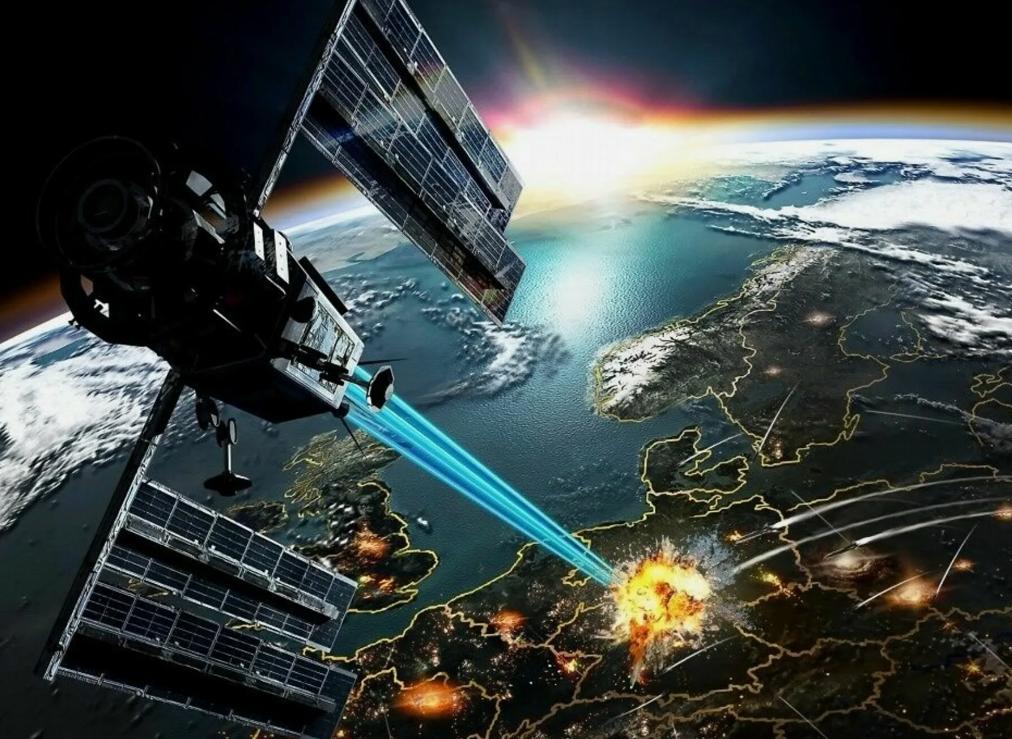US, Russia, China vie for dominance in space Arms race goes cosmic?
China's Ministry of State Security reported the disclosure of "numerous cases of espionage in the aerospace sector in recent years," the reason for which Beijing determined the intention of external forces to "contain and suppress" the country. True, the name of the spy state was not made public, but the message's addressee is quite obvious. The fact is that back in February 2024, Washington announced plans for a large-scale reorganisation of its air and space forces due to the "growing threat of armed confrontation with China" and the need to "maintain competitiveness".
In response, China's Defence Ministry outlined the United States as the "biggest driving force for the militarisation of outer space", which has become "the biggest threat to space security" due to its designation of space as a "war territory". Beijing also documented the White House's "malicious tracking" of "other countries' spacecraft with a dangerous proximity to them," which "creates a risk of collision."
Afterwards, Reuters spread information about the signing of a contract worth almost $2 billion with the Pentagon-controlled Office of Military Space Intelligence in 2021 by Elon Musk's SpaceX. It was noted that the spy satellites would be able to track targets anywhere in the region with one-step data delivery to interested circles.
In general, there is nothing surprising in this course of events, as the US defence establishment has not started preparing "for a future conflict in space with Russia and China", justifying its doctrine by the deployment by these countries of missiles and lasers capable of "disabling satellites and disrupting military and civilian communications". In an important move to counter this, the US considered the deployment of a network of spy satellites to "search for, detect and track objects from space" in order to detect threats to US systems in a timely manner, especially because of the possibility of "Russian anti-satellite weapons with nuclear weapons.
In the context of what is under consideration, let us draw attention to Russia's veto in April of this year in the UN Security Council of the US-Japanese resolution "On the Prohibition of the Placement in Earth Orbit of Nuclear Weapons and Other Weapons of Mass Destruction". As noted in this connection, the Russian Federation considered this document a "devious plan", referring to the United States' refusal to include in the text an amendment proposed by Moscow "Concerning the non-deployment in space of weapons of any kind".
At the same time, the Chinese Permanent Mission to the UN outlined the biggest problem of the current historical period as "the pursuit of hegemony in outer space by individual superpowers," who have defined space as an "operational frontier" and deployed "offensive space weapons. Beijing is convinced that the establishment of a "military alliance in outer space" has seriously undermined "the peaceful purpose of space, increasing the risk of military conflicts".

Thus, at present, space geopolitics has become the most prominent part of the geopolitical confrontation in the world, primarily between the United States and China, although Moscow's position in this field is not the least important. In support of this, experts refer to the information circulated back in 2014 about Russia's plans to create a powerful constellation of satellites for "remote sensing of the Earth" in 2016-2025. In light of this, it was expected that about 30 new spacecraft would be delivered to the orbital platform, which could fully "meet the requirements of the Russian Ministry of Defence in terms of volume, quality and speed of solving assigned tasks".
However, it should be noted that the topic of "space reconnaissance" is also quite relevant for other regions. Thus, in late 2023, information was passed about the confirmation by the relevant structures of Japan, the United States and South Korea of the rotation in the Earth's orbit of a "certain object" that could be launched from North Korea. As it was soon made public, North Korea launched its own satellite, and, according to Pyongyang, the plan to successfully release the Mulligan-1 reconnaissance satellite was implemented (for permanent control of anti-Pyongyang moves by external forces).
Less than a month ago, the University of Turkish Aeronautics Association informed the public about the research on satellite orbit determination in order to "increase Türkiye's space situational awareness and capabilities". As noted, one of the 10 objectives of Türkiye's National Space Programme is "observation and tracking of space objects from the ground", where the main parameter outlines the development of an artificial intelligence application to "identify satellites and space objects in the sky". Thanks to which it will be possible to instantly detect "the speed, position and trajectory of all kinds of space objects flying over our country". This, in turn, will make it possible to "conceal those actions that we would not want to flaunt in front of spy satellites".
Surely the above-mentioned facts unambiguously demonstrate the non-fantastic possibility of "Star Wars" not on TV screens and not in video games. And against this background, the data cited by the media about the first military exercises in orbit planned by the US Space Forces do not look like something nonsensical anymore.
Teymur Atayev, specially for Caliber.Az
The views and opinions expressed by guest columnists in their op-eds may differ from and do not necessarily reflect the views of the editorial staff.








